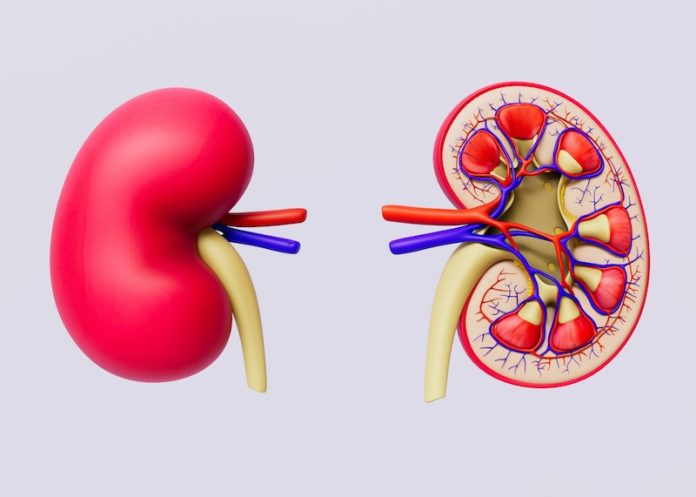
Cholesterol is a fatty substance in your blood that helps your body function properly. While it’s essential for building healthy cells, having too much cholesterol can be dangerous. High cholesterol is one of the main risk factors for heart disease, which is a leading cause of death.
One common way to lower cholesterol levels is by using medications such as rosuvastatin. However, a recent study suggests that this drug, especially in higher doses, could potentially harm your kidneys.
The study, conducted by researchers at Johns Hopkins University, aimed to investigate the possible connection between rosuvastatin and kidney problems.
The researchers analyzed the medical records of over 150,000 people who were new users of rosuvastatin and compared them with nearly 800,000 people who started taking another cholesterol-lowering drug called atorvastatin.
They looked at records from 2011 to 2019 to find out if any of these people developed kidney issues after starting the medication.
Kidneys play an important role in your body’s health. They filter out waste products and extra fluids from your blood, keeping your system clean and balanced.
When kidneys start to malfunction, symptoms like blood or protein in the urine can be early signs that something is wrong.
In earlier studies, rosuvastatin had been linked to kidney issues, but this new research aimed to confirm whether these problems were seen in a large group of people using the drug in real-world settings.
The results of the study are concerning. People who took rosuvastatin were more likely to have signs of kidney problems, such as blood and protein in their urine, compared to those taking atorvastatin.
These risks were even higher for people who were on higher doses of rosuvastatin. For individuals who already had existing kidney issues, the researchers found that a significant number were prescribed doses of rosuvastatin that exceeded the recommended safe limits.
This is worrisome because people with kidney problems are already at greater risk for other health complications, including heart disease.
So, what does this mean if you’re currently taking rosuvastatin or if your doctor has recommended it to you? The key takeaway is not to panic or stop taking your medication without speaking to your doctor.
Instead, it’s important to have an informed conversation about your health and the best treatment plan for you.
Here are a few things you can do:
- Talk to your doctor: If you’re already taking rosuvastatin or considering it, discuss this study with your healthcare provider. Ask whether this medication is the right fit for you and whether the dose you’re on is appropriate, especially if you have kidney concerns.
- Monitor your kidney health: It’s a good idea to keep an eye on how your kidneys are functioning if you’re taking cholesterol-lowering medications. Simple urine tests can help detect any early signs of kidney issues. Regular check-ups with your doctor will help ensure that everything is working as it should be.
- Check your dosage: If you’re on a higher dose of rosuvastatin, ask your doctor if it’s necessary to stay on that dose or if a lower dose might be safer for your kidneys. In some cases, switching to a different cholesterol medication might be an option to consider.
It’s also important to remember that medication is just one part of managing high cholesterol. Lifestyle changes like eating a healthy diet, exercising regularly, and maintaining a balanced weight are essential.
These habits can help lower cholesterol levels and improve your overall health, whether or not you’re taking medication.
While the study highlights potential risks associated with rosuvastatin, it doesn’t suggest that everyone should avoid the medication.
Instead, it emphasizes the importance of being cautious and staying informed about the medications you’re taking, especially if you already have underlying health issues like kidney problems.
Always consult with your healthcare provider before making any changes to your medication or treatment plan.
By working closely with your doctor, keeping an eye on your kidney health, and making healthy lifestyle choices, you can manage your cholesterol levels and reduce the risk of complications from both high cholesterol and the medications used to treat it.
If you care about heart disease, please read studies about a big cause of heart failure, and common blood test could advance heart failure treatment.
For more information about heart health, please see recent studies about a new way to repair human heart, and results showing drinking coffee may help reduce heart failure risk.
Copyright © 2024 Knowridge Science Report. All rights reserved.



